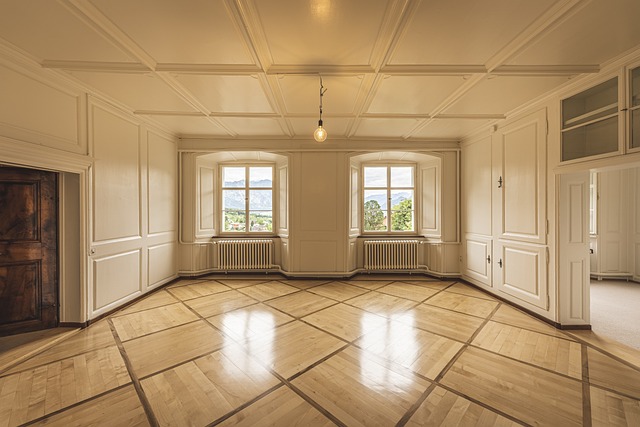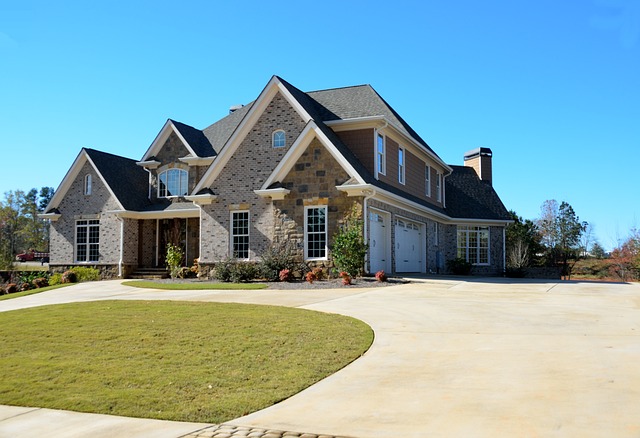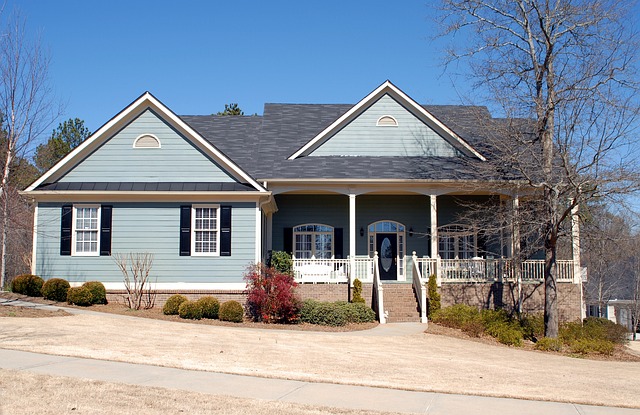2023 saw significant changes in Singapore's real estate market with the implementation of new property cooling measures, including updates to the Additional Buyer's Stamp Duty (ABSD) for second properties, known as Absd Singapore 2nd Property. These measures aim to curb speculative investment and promote sustainable growth within the sector. The Absd framework has been refined to impose higher rates on subsequent property purchases by both Singaporeans and foreigners, serving as a deterrent against excessive real estate investment. Prospective buyers must now sell their first property within six months of purchasing a second home in some cases, with stricter regulations for foreigners. The Absd Singapore 2nd Property has become a key focus for investors seeking to navigate the evolving market while adhering to the government's policy direction. Investors need to stay informed and adaptable, considering the financial implications of ABSD on property acquisition costs and the broader economic indicators when making investment decisions post-ABSD implementation. The Absd has reshaped the investment landscape, necessitating a strategic approach for second property acquisitions in Singapore's stable and regulated housing market.
Singapore’s property landscape has undergone significant shifts with the introduction and subsequent updates to the Additional Buyer’s Stamp Duty (ABSD) for second properties. This article delves into the latest developments in ABSD for Singapore’s second property, providing a comprehensive overview of the framework, recent changes, and their implications on real estate investors. We explore the updated eligibility criteria for those exempt from the duty, examine market trends since its implementation, and offer strategies to navigate these regulations effectively. The article also examines how ABSD continues to influence Singapore’s property sector, ensuring readers are well-informed about the dynamics at play in this vibrant market.
- Overview of ABSD Singapore 2nd Property Framework
- Recent Changes and Their Impact on Real Estate Investors
- Eligibility Criteria for the Second Property ABSD Exemption
- Analyzing Market Trends Post-Implementation of New Rules
- Strategies for Investors Navigating the Updated ABSD Regulations
- The Role of ABSD in Shaping Singapore's Real Estate Landscape
Overview of ABSD Singapore 2nd Property Framework
In recent times, the Singaporean government has refined its Additional Buyer’s Stamp Duty (ABSD) framework, particularly for individuals purchasing a second property within the Lion City. This framework, known as ABSD Singapore 2nd Property, is designed to curb speculative behavior in the property market and ensure a stable and sustainable housing environment for both residents and investors. For Singaporeans buying their second residential property, the duty rate is significantly higher than for their first purchase. This graduated approach aims to discourage excessive investment in real estate by individuals who already own one or more properties. The exact rates are subject to change based on government policy and market conditions, but as of the latest updates, foreign entities face even steeper penalties, reflecting the government’s stance on moderating demand from non-residents.
The ABSD Singapore 2nd Property regime also differentiates between types of property buyers. Singaporeans purchasing their second residential property will incur a higher ABSD rate compared to their first acquisition. This includes both individuals and entities such as companies whose ultimate owner is a Singaporean citizen or permanent resident. The rates for subsequent properties are notably higher, with each additional property incurring an incremental duty. This tiered system is part of a broader policy to promote home ownership among citizens while managing the risks associated with an overheated property market. It’s important for potential buyers to stay informed about the latest ABSD rates and regulations, as they can significantly impact the affordability and viability of purchasing additional properties in Singapore.
Recent Changes and Their Impact on Real Estate Investors
2023 has seen significant shifts within the real estate landscape in Singapore, with the Absolute Return and Sustainability Strategy (Absd) Singapore 2nd Property offering fresh investment opportunities. The introduction of new property cooling measures by the Monetary Authority of Singapore has brought about a recalibration of strategies among investors. These measures, aimed at curbing speculative behavior, have resulted in a more measured approach to property investments, with an increased focus on long-term value and sustainability. For real estate investors, this translates to a market that demands careful analysis of potential assets, with a particular emphasis on properties that align with the evolving economic and environmental policies.
The impact of these changes is multifaceted. On one hand, they have introduced a degree of uncertainty and volatility, challenging investors to adapt their investment criteria and strategies. On the other, they have also presented a unique window of opportunity for savvy investors who are well-versed with the new regulations and can navigate the market’s nuances. The Absd Singapore 2nd Property, in particular, has shown resilience, with its potential for yielding strong returns being underscored by its strategic positioning and commitment to sustainability practices. Investors looking to capitalize on this sector must stay informed and agile, ensuring their investment decisions are not only aligned with the latest market trends but also with the overarching policy direction set forth by the Singaporean government. This dynamic environment requires investors to be both proactive and prudent in their approach to real estate investments within Singapore.
Eligibility Criteria for the Second Property ABSD Exemption
The Absence of Second Home (ASH) and Long-Term Investment (LTI) schemes have reshaped the eligibility criteria for purchasing a second property in Singapore, post-ABSD relaxation. As of the latest updates, individuals who are looking to acquire a second residential property in Singapore under the ABSD Singapore 2nd Property framework must meet certain conditions. One such condition is that the first property must have been sold within 6 months from the date of acquisition of the second property, or obtained an extension for not more than 6 months, unless it falls under the LTI scheme where specific criteria apply. Additionally, entities such as Singaporean corporations and trusts with at least 51% local equity are eligible for the exemption, provided they meet the stipulated conditions. Foreigners remain ineligible for this exemption, reinforcing the government’s stance on controlling foreign ownership of properties to ensure a stable housing market. It is imperative for prospective buyers to stay updated with the Urban Redevelopment Authority (URA) and Inland Revenue Authority of Singapore (IRAS) guidelines as eligibility criteria can evolve with policy changes. For the most accurate and current information, consulting with property experts or legal advisors knowledgeable in Singapore’s property tax regulations is advisable.
Analyzing Market Trends Post-Implementation of New Rules
In the wake of the new regulations implemented by the Absolute Returns for Investors in Singapore Dividend (Absd) structure, particularly with the introduction of the 2nd Property rule, the property market in Singapore has witnessed a series of shifts. Investors and market analysts are closely scrutinizing these changes to discern their impact on real estate trends. The introduction of the Absd 2nd Property rule, which stipulates specific conditions for investing in properties under this scheme, has prompted a reevaluation of investment strategies. Market trends now reveal a heightened interest in properties that align with the Absd criteria, as investors navigate the new landscape to optimize their returns while adhering to the regulations. The analysis of these trends indicates a cautious optimism among investors who are reassessing their portfolios to capitalize on the unique opportunities presented by the Absd Singapore 2nd Property framework.
Furthermore, the post-implementation period has seen a surge in data-driven approaches as market participants seek to understand the nuances of the evolving real estate environment. With the Absd Singapore 2nd Property rule being a relatively new addition, there is an ongoing effort to interpret market signals and predict future trends. This analytical focus has led to a more sophisticated understanding of property valuations, investment potential, and the broader economic implications. As such, investors are increasingly turning to advanced data analytics and machine learning models to inform their decisions, ensuring they stay ahead in a market that is continuously adapting to new rules and regulations.
Strategies for Investors Navigating the Updated ABSD Regulations
Investors considering the acquisition of a second property in Singapore must navigate the evolving landscape of the Additional Buyer’s Stamp Duty (ABSD) regulations. The Singapore government has implemented ABSD as a measure to cool down the property market and promote a more sustainable housing environment. As of the latest updates, individuals who are not first-time buyers are subject to increased ABSD rates when purchasing a second residential property. Strategies for investors include thorough research on the most current ABSD rates, understanding the different categories of property ownership, and assessing the long-term implications of these regulations on their investment portfolio. It is imperative to stay informed about any changes to these rules, as they can significantly impact the cost of acquiring property in Singapore. Investors should also consider the broader economic context, including interest rates and property market trends, when formulating their investment approach post-ABSD implementation. By carefully evaluating the financial implications and adapting investment strategies accordingly, investors can better position themselves within the updated ABSD framework set by the Singapore government.
The Role of ABSD in Shaping Singapore's Real Estate Landscape
In recent years, the Additional Buyer’s Stamp Duty (ABSD) in Singapore has become a pivotal factor in influencing the real estate market dynamics. Designed to curb speculative buying and ensure a stable property landscape, the ABSD has been strategically implemented to target different categories of buyers, including second-property owners. The introduction of varying rates for different profiles of buyers, such as Singapore citizens purchasing their second property, has led to a noticeable shift in investment patterns within the real estate sector. This policy instrument not only aims to cool down overheated demand but also encourages long-term ownership and sustainable growth in the property market.
The impact of ABSD on Singapore’s real estate landscape is multifaceted. For instance, the ABSD for Singapore citizens purchasing their second residential property was increased to 8%, a move that has prompted a reevaluation of investment decisions among potential buyers. This has had a direct effect on the volume of transactions in the higher-end market, where second properties are more prevalent. The duty serves as a deterrent against rapid asset price inflation, fostering an environment where property acquisitions are made with greater deliberation and foresight. As a result, the real estate market in Singapore remains characteristically resilient and well-regulated, with policies like ABSD playing a critical role in its ongoing evolution.
In conclusion, the evolving framework for ABSD on the second property in Singapore has brought about significant changes that continue to shape the real estate market. Investors must stay abreast of these developments to navigate the complexities effectively. The recent adjustments aim to promote a stable and sustainable property market while encouraging responsible investment behaviour. Understanding the eligibility criteria for exemptions and the broader implications of these regulations is crucial for those looking to invest in Singapore’s dynamic property scene. As the ABSD policy plays its role in steering the real estate landscape, investors are advised to carefully consider their strategies within this adjusted framework to secure favorable outcomes.



